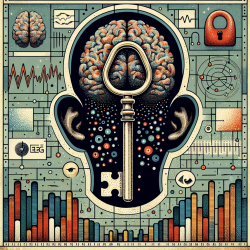Introduction
The European Union's (EU) Medical Device Regulation (MDR) has introduced a more rigorous framework for evaluating medical devices, emphasizing the importance of clinical evidence in establishing safety and performance. A recent study titled "EU’s Medical Device Expert Panels: Analysis of Membership and Published Clinical Evaluation Consultation Procedure (CECP) Results" provides valuable insights into the composition and effectiveness of these expert panels. This blog explores how practitioners can leverage these findings to enhance their clinical evaluation skills and encourages further research into broadening expertise within these panels.
Understanding the Current Framework
The MDR has established expert panels to independently review the scientific, technical, and clinical evidence supporting the market authorization of high-risk medical devices. These panels provide a secondary review of the clinical evaluation conducted by Notified Bodies, ensuring a comprehensive assessment of the device's benefit-risk profile. However, the study reveals that while the panels are composed of members with strong clinical expertise, there is a notable lack of technical and biological expertise, which may limit their ability to evaluate significant technical and biological risks.
Key Findings and Implications
The study's analysis of the expert panels' composition and the content of their Scientific Opinions (SOs) highlights several key findings:
- Panels are predominantly composed of clinical experts, with limited representation of technical and biological experts.
- The focus of the SOs is primarily on clinical evidence, with minimal attention given to technical and biological considerations.
- The lack of technical and biological expertise may hinder the panels' ability to fully assess the risks associated with novel and complex devices.
These findings suggest that expanding the expertise within the panels to include more technical and biological experts could enhance the depth and quality of their evaluations. This broader expertise would allow for a more holistic assessment of the devices, considering not only clinical performance but also potential technical and biological risks.
Actionable Steps for Practitioners
Practitioners in the field of speech-language pathology and related disciplines can take several steps to improve their skills in clinical evaluation based on the study's findings:
- Expand Knowledge Base: Engage in continuous learning to broaden your understanding of technical and biological aspects of medical devices. This could involve attending workshops, webinars, or pursuing additional certifications.
- Collaborate with Experts: Foster interdisciplinary collaborations with technical and biological experts to gain insights into the non-clinical aspects of device evaluation.
- Advocate for Diverse Panels: Encourage the inclusion of a wider range of expertise in evaluation panels to ensure comprehensive assessments that consider all potential risks.
Encouraging Further Research
While the study provides valuable insights, it also highlights the need for further research into the composition and effectiveness of expert panels. Practitioners are encouraged to explore additional studies and contribute to the ongoing dialogue about improving clinical evaluation processes. By doing so, they can help shape policies and practices that enhance the safety and performance of medical devices.
To read the original research paper, please follow this link: EU’s Medical Device Expert Panels: Analysis of Membership and Published Clinical Evaluation Consultation Procedure (CECP) Results.










